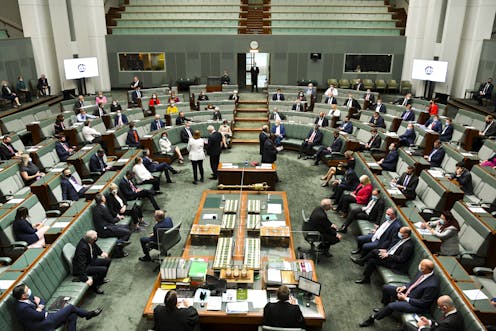$177 million flowed to Australian political parties last year, but major donors can easily hide
- Written by Kate Griffiths, Deputy Program Director, Grattan Institute

The Australian Electoral Commission has updated its database[1] of financial disclosure information for 2020-21.
This happens once a year and is keenly watched by political observers because it includes information about who is donating what to whom.
And yet, despite Australia’s political parties collectively reporting A$177 million in income, only a tiny fraction of this is identifiable. So the public is left with a woefully inadequate picture of what is actually going on with political funding in Australia.
What does the data tell us?
State elections attracted the big bucks
Queensland, Western Australia, Tasmania, the Australian Capital Territory and Northern Territory all went to the polls last year. So it is perhaps no surprise that most of the donations in Tuesday’s data release[2] were made to political party branches in these states.

















